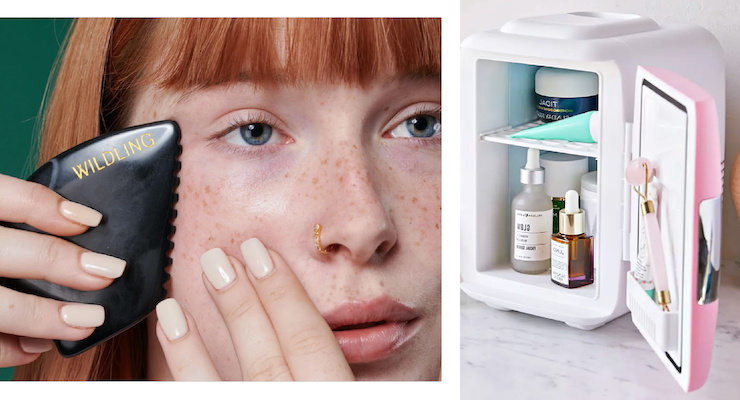Elle Morris, Senior Global Consultant at Marks, part of SGS & Co. 03.25.21
Covid-19 has impacted every aspect in our lives over the last year. It has interrupted family and work life; wreaked havoc on the worldwide economy, and caused tremendous health and personal suffering.
And, the way we conduct business has completely changed at retail, particularly in the beauty sector. Only recently have many states allowed beauty service businesses to reopen with strict safety protocols to protect both the service providers and their consumers.
Sephora and Ulta have had to alter their famous “come and play” retail philosophies of self-discovery in the world of brick and mortar beauty, to build up their online offerings, as well as ensure that there is no touching or sampling in their stores. Consultants are more heavily relied upon for product expertise and are required to assist all consumers.
As a society, we are dependent upon communicating through our computers – spending more time in front of screens than we ever have. We have also incorporated wearing protective facial masks into our daily existence; obscuring almost every facial aspect except our eyes and brows.
So, given all these wildly unexpected changes to our lives, how has the beauty industry been impacted? What products are succeeding in this unequivocal time of mandatory physical isolation and cloaked faces?
Skincare Tools and Serums Burgeoning
The days of regular facials have been temporarily suspended– either through services not being permitted for health and safety reasons or due to economic restraint.Perhaps we have also been focusing on our skin’s appearance because we spend so much time seeing ourselves on screen that we can’t help but notice its condition or imperfections more than we have in the past.
In any case, consumers are seeking tools to use at home to help them maintain their skin care routines that were once handled by professionals.
Since the onset of the pandemic, there has been a steady lift in at-home skin care tools such as facial steamers, blackhead vacuums, facial scrapers and rose quartz/jade rollers. Sales of facial steamers jumped dramatically in the first and second quarters of 2020, with many brands selling out online and at retail partners like Sephora during that time.
Further to consumers becoming their own skin care professionals, one of the most popular items in the pandemic has been the mini beauty care fridge. Like you would see at a spa, there are now very small, décor-friendly home refrigerators designed especially for skin care products, which can be kept in a bathroom or on a dresser for easy access during a skin care routine. Between February and March of 2020, sales of these mini fridges rose 101.9%.-- and that was just the first month of the pandemic.
Tools that have a calming effect through ritual simplicity have also grown. Gua sha tools refer to jade, rose quartz, crystalline, and other semiprecious stones carved to have a firm, flat surface. The term translates from Chinese to “scraping,” but these stone tools aren't meant for exfoliating. Instead, gua sha tools are pressed on the face in gentle, upward strokes.
At the clean beauty retailer Credo, these skin care tools have more than doubled their percentage of sales from the year prior since the pandemic hit the U.S. in March 2020. Growing by more than 200%, purchases of a gua sha tool called “Empress Stone” from Wildling Beauty led to a meteoric rise in sales.
Along with these tools, interest in the benefits of serums has soared. Vitamin C, hyaluronic acid and retinol serums have all seen a 20-40% increase in online searches over the past 12 months.
Michael Ahmad, national education manager Herbivore Botanicals, the indie brand known for serums like the exfoliating Glow Serum, says that serum sales have increased by 139% since March, which he attributes to a “consumer base that’s looking to create indulgent self-care moments that help to delineate between work and rest when both are now done at home”.
Perhaps some of the most interesting product development and growth are serums designed to protect the skin from blue light or screen light – consumers spend so much time in front of screens (mobile, tablet, desktop), this “urban pollution” can cause skin damage and dehydration.
One Ocean Beauty, which sells a hydrating blue light-blocking mist, reports that sales of the product grew by 200% over the months of April and May 2020, three times the previous monthly average. Supergoop, which now carries six blue light-blocking products, has also seen an uptick in sales, two of which — a sheer sunscreen and a makeup primer — are currently the top two sellers in facial sun care at Sephora.
Bottom Line
While our lives have changed, the beauty business and its consumers are resilient. We may never go back to the “way things were” but we are discovering new products to help us keep our beauty routines intact.We may end up better for it in the end – with product innovation such as blue light block serums and leveraging age old beauty tools such as gua sha. The beauty industry will continue to march forward and meet the unexpected needs of its consumers.




























